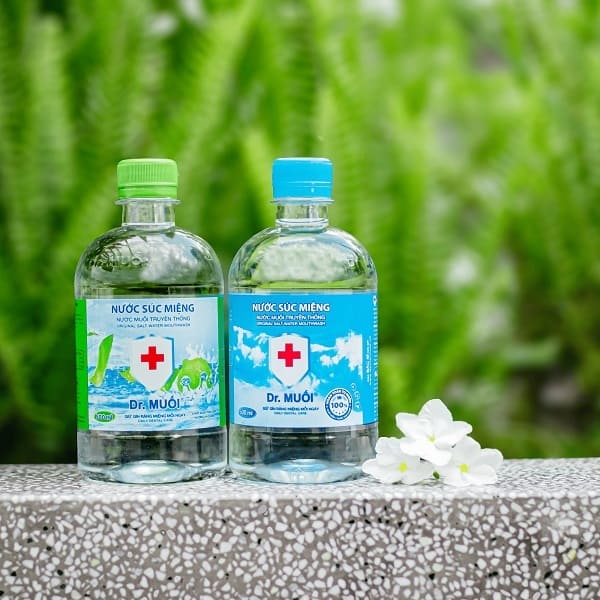7 effective ways to overcome toothache during pregnancy
During pregnancy, pregnant women have toothache is a very common problem. Due to hormonal changes, a pregnant mother’s gums are extremely sensitive even if only slightly impacted. So what to do when pregnant women have toothache? Immediately refer to 7 effective ways to treat toothache for pregnant women summarized in the article below.
1. Can pregnancy cause toothache?
Pregnancy is a period of the most hormonal changes in the body, which can actually lead to a number of problems related to teeth and gums. Hormonal changes in the mother’s body as well as the need for calcium of the fetus make the pregnant mother’s body weak, including her teeth. So during pregnancy, to stay away from all dental problems, pregnant women need:
- Adequate calcium supplement for both mother and baby.
- Maintain good oral hygiene.
- Visit your dentist at regular intervals to monitor the condition of your teeth.
2. Causes of toothache in pregnant women
For pregnant women with toothache, there are some common causes below:
2.1 Toothache due to morning sickness
Morning sickness can be one of the reasons why pregnant women have toothache. Stomach acid rushes to the oral cavity, causing tooth decay to develop. That leads to toothache.

2.2 Due to hormone disorder
Gums are more susceptible to inflammation when hormones in the body are disturbed due to pregnancy. From there, problems with teeth and gums arise.
2.3 Daily diet
During pregnancy, you not only have to provide enough nutrients for your body, but also provide for the baby in your belly. Therefore, to absorb enough nutrients, pregnant women need to change some daily eating habits. Provides adequate amounts of vitamins and minerals to help keep teeth and gums healthy. For example, increase the amount of green vegetables, fruit or milk in the meal. However, it should be noted that sweets are also easy to damage teeth, so it is necessary to choose the right type of milk for pregnant women.

2.4 Calcium deficiency
During pregnancy, the amount of calcium that the body needs to absorb is larger than usual. This is because not only the mother’s body needs but also the fetus needs this nutrient to develop the body. Therefore, if you do not absorb enough calcium, your body will automatically take away the available calcium in the body to fill in the deficiency. The most abundant area is the teeth. So toothaches will arise.
2.5 Increased sensitivity
Pregnancy makes your body much more sensitive, including the gum area. At the same time, they can lead to a variety of dental problems when:
- Improper brushing of teeth.
- Do not brush your teeth often.
- Using the wrong toothbrush.
2.6 Improper oral hygiene
The growing fetus in the womb will increase the sensitivity of the gums. Then you easily brush your teeth the wrong way because of the sensitivity of the gums. For example, brushing too hard or brushing too little, only rinsing through the mouth, … That leads to many dental problems.
3. Does toothache during pregnancy affect the fetus?
During pregnancy, a pregnant woman has a toothache which is a warning sign for the mother’s body to have dental problems. Dental diseases such as periodontitis, gingivitis progress very quickly, making teeth loose. Due to the destruction of the ligaments holding the teeth, the alveolar bone is destroyed, so tooth loss is inevitable. However, it not only affects the mother, but also affects the fetus in the womb.
Pregnant women with gingivitis and periodontitis have an increased risk of preterm delivery and low birth weight. Pregnant mothers with periodontitis have a 2.2 times increased risk of preterm delivery or low birth weight compared with mothers without periodontitis.
Besides, bacteria causing tooth decay S.mutans has the ability to be transmitted through blood, from mother to child during pregnancy. This makes babies born vulnerable to tooth decay. According to some studies, the number of decayed teeth of 4-and-a-half-year-old children with caries whose mothers had cavities during pregnancy was higher than those of children whose mothers did not have caries.
4. 7 how to cure toothache for pregnant mother
4.1 Gargle daily with warm salt water
Using dilute salt water with moderate salinity gargle will help disinfect, disinfect and stop toothache pain and how to treat toothache for pregnant women should be done immediately. Many people make their own salt water without the correct dose, sometimes too salty, sometimes too light, so sometimes the effect of cleaning the mouth is not really good. So use mouthwash Dr Muối helps you to clean your teeth as much as possible without having to measure the amount of water and salt every time you rinse your mouth.
 Dr Salt mouthwash helps clean teeth and bad breath
Dr Salt mouthwash helps clean teeth and bad breath
With ingredients from natural sea salt containing minerals such as Ca, Mg, K, … good for teeth, Dr Salt mouthwash helps to remove all plaque that makes pregnant women suffer from toothache.
You can see product details here
4.2 Using guise leaves to help relieve toothache during pregnancy
The way to treat toothache for pregnant women, handed down from folklore, is to use guise leaves. In the stem and leaves of guava leaves contain alkaloids and beta-caryophyllene, the roots contain benzyl acetate. These are 3 substances with high antibacterial properties, effectively reducing swelling and inflammation.
Use 1 handful of bay leaves to boil or crush with a little water and white salt. Let the water cool, then remove the leaf residue, keep the water to gargle several times a day. About 5 minutes each time. Persist in doing to relieve toothache.
4.3 Use fresh garlic to cure toothache
Fresh garlic contains allicin, glycogen and phytonxit, which are antibiotics with effective bactericidal and antiseptic effects. Cure toothache for pregnant women with crushed fresh garlic and a little salt. Applying it on the inflamed area helps reduce inflammation. Persist in doing it every day to get the best results.
4.4 Ginger effectively relieves toothache
Cure toothache for pregnant women with ginger is similar to fresh garlic. In ginger, there are oleoresin, terpenes and zingibain which are considered to be effective toothache relievers for pregnant women.

4.5 Clove
Cloves have eugenol which is a very powerful natural anesthetic that provides effective pain relief. In addition, the plant also has antiseptic and bactericidal properties. Pregnant women use no side effects. When pregnant women have wisdom tooth pain, use cloves to squeeze and grind in the teeth so that the water flows into the mouth. Keep the juice of cloves pressed in the place of toothache for 1 hour, pregnant women will see the effect.
4.6 Antiseptic
Some over-the-counter antiseptics, such as benzocaine, can be applied directly to the painful tooth or inflamed gums, numbing the gums. Thereby reducing the pain. However, you need to consult with your doctor to see if the product is safe for you and your unborn baby.
4.7 Apply warm or cold compress
Pregnant women with toothache what to do? Apply a warm washcloth or cold pack to the painful area to soothe the toothache.

5. Ways to prevent toothache during pregnancy
5.1 Supplement calcium and vitamin D
The fetus needs calcium for body development. Therefore, adding calcium-rich foods such as cheese, milk and dairy products, seafood, cereals, etc. In addition to calcium supplements, vitamins are also indispensable because this is a micronutrient that helps calcium absorption. better. You can supplement vitamin D with food groups such as salmon, mackerel, eggs, cheese, margarine, …
5.2 Note when cleaning teeth
Brush your teeth gently and slowly.
Use a small soft-bristled toothbrush or a children’s toothbrush.
If brushing your teeth feels nauseous, you should focus your attention on something else, not stop brushing.
5.3 Dental care before pregnancy
The best way is before you get pregnant, pay attention to your oral health. To take care of your teeth before you become pregnant, you should:
- Brush teeth 2 times per day.
- Visit your dentist regularly to detect problems in time.
- Use dental floss to clean food stuck in between teeth instead of using toothpicks.
- Gargle with Dr. Salt mouthwash to clean plaque on teeth, eliminate bad breath and add minerals that teeth need.
Above is a summary of ways to treat toothache for pregnant women. Hope you have more knowledge of proper oral hygiene to reduce toothache during pregnancy.
You Can Refer To More Articles:
Should I wash my nose with physiological saline?
Instructions for Self-healing Sinusitis with Physiological Salt Water
Tips for Treating Allergic Rhinitis with Physiological Salt Water Simple and Effective
Instructions on how to hydrate with salt water to treat bad breath
